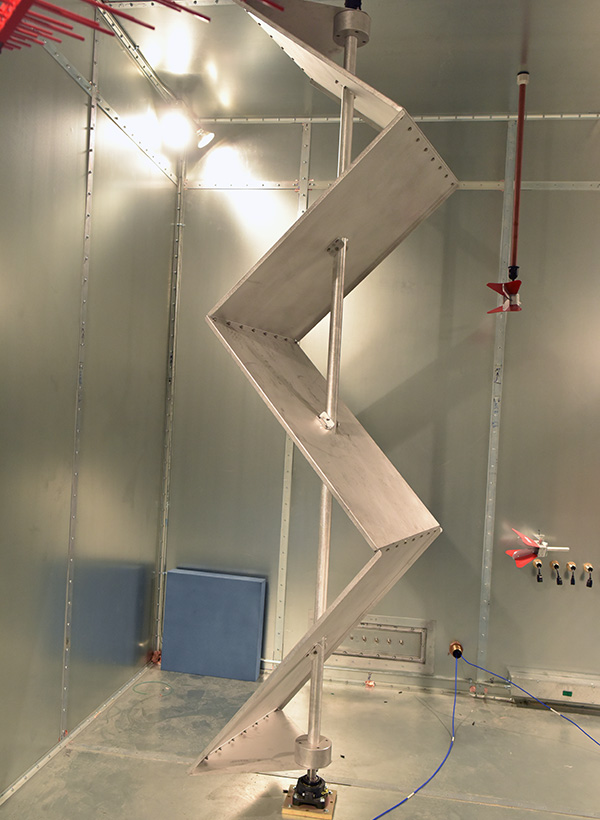Master of Science in the Internet of Things

A graduate program in The Internet of Things from Drexel Engineering provides expertise for applying a combination of skillsets for this emerging discipline. The future envisioned by the Internet of Things (IoT) is one in which a high density of networked devices are collecting and processing data. Diverse applications impact areas such as personal health monitoring, intelligent transportation and smart mobility systems, energy efficient smart buildings, and environmental sensing for solutions at a campus or city scale. A Master’s in IoT will prepare you to explore the possibilities for developing and applying this technology towards the endless opportunities to incorporate IoT in nearly every part of modern living.
As a student you will gain a deep knowledge in analytics, sensors, wireless communications, and networks to grow into an expert that can ideate, design, develop, test, and debug the applications of IoT technology. This program will give you the tools that you will need to advance your career or entrepreneurial ambitions in industry or provide a foundation for future PhD research in engineering or a related field.
Delivery
- On-campus
- Full-time or Part-time
- The program will take approximately two years to complete on a full-time basis or can be completed on a part-time basis in 3-4 years.
Curriculum and Requirements
- The master's in IoT requires a total of 45 credits; 12 credits in Internet of Things coursework; 21 credits of electrical engineering elective courses; and the remaining 12 credits can be completed through a coursework only, non-thesis option of electives or a combination with 9 credits of thesis research (recommended for those interested in doctoral study).
- Tailor learning to your objectives with general technical electives in your area of interest inside or outside of the department, with approval from your advisor.
- Graduate Certificate in Engineering Management — earn an additional credential without adding credits to your plan of study. Using electives, you will gain skills to lead projects and teams. Learn more
Graduate advisors are available to guide your course selection and scheduling of core and elective courses. Visit the Drexel Catalog for more information or learn more about our admissions requirements.
About Drexel Engineering
Drexel is a leader in the field, as one of only a few universities offering a Master’s degree in the Internet of Things. A great diversity of student objectives and specialties is supported by a progressive, flexible curriculum developed by our renowned faculty to address developing trends and incorporate industry leading technology. Deepen fundamental knowledge of core areas of electrical and computer engineering and to customize your curriculum with topics such as wireless communications and networks, machine learning and data analytics, sensor and embedded systems, radio frequency electronics, as well as entrepreneurship and engineering management of new ventures. Students can also apply unique, hands-on, laboratory-based coursework towards their degree.

At Drexel you are encouraged to be innovative and imaginative in seeking solutions. The Electrical and Computer Engineering (ECE) Department offers coursework in a wide range of emerging fields to provide you with well-rounded skills for addressing each unique problem or opportunity. You will become equipped with the tools for finding sustainable and achievable outcomes to address society’s biggest challenges while making them relevant to your career goals.
Philadelphia
The city of Philadelphia is our campus – a diverse urban environment with a variety of social, cultural and learning opportunities that will enrich your educational experience. Philadelphia is also a draw for talented instructors and researchers, meaning you will engage with some of the best minds in engineering and other disciplines. Learn more.
Graduate Co-op
This program is eligible for Graduate Co-op — a unique, optional three or six-month work full-time professional experience that alternates with study, available for domestic and international full-time master’s students.
Research
All students in the Master’s in Internet of Things graduate program are welcome to engage in research as part of their degree or as extra-curricular participation. Full-time master’s degree candidates or those interested in pursuing a PhD are encouraged to base their master’s thesis on some aspect of faculty research.
Current research in the ECE Department conducted by our world-renowned faculty, funded by the National Science Foundation, National Institutes of Health, U.S. Department of Defense, Federal Aviation Administration as well as with many notable industry partners.
Visit research and design for more about other research activity at the College of Engineering.
“The Internet of Things (IoT) is considered to be one of the most rapidly adopted and developing technologies that is projected to transform our future cities,” said Kapil Dandekar, PhD, E. Warren Colehower Chair Professor in electrical and computer engineering.
Read Story
Career Opportunities in Internet of Things
A graduate program in the Internet of Things prepares you for a career path that could include continuing your education in a PhD program or pursuing advanced technical, research or management positions in telecommunications companies, high-tech industries, electronics manufacturing, security, utilities, urban planning, automation or robotics. The number of IoT devices is projected to grow exponentially to many billions of devices with an anticipated market of hundreds of billions of dollars, driving the demand for experts in the field.
Overall, employees with graduate degrees can earn up to 28 percent more than bachelor’s degree holders over the course of their career. The outlook for computer network engineering jobs, and new products associated with IoT and emerging areas, is expected to be very strong, according to the Bureau of Labor Statistics. As reported by payscale.com electrical engineers with master’s degrees can earn 10% or more per year in starting salary over those with only a bachelor’s degree.
Apply Now Graduate Admissions Department Page